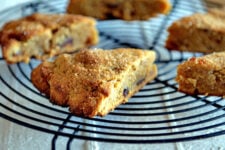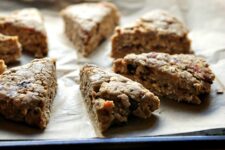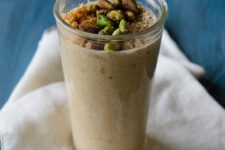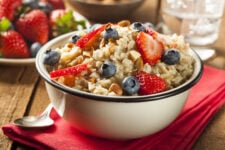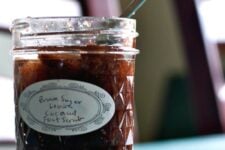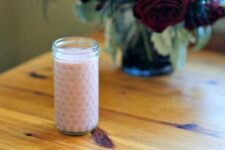The most common sweetener used worldwide is refined sugar, made from either sugar cane or beet sugar. It’s well known that excess added sugar consumption is linked with various health conditions, including diabetes, obesity, and cancer (1).

Because of this, there’s a high consumer demand for natural sugar alternatives that have nutritional benefits. Date sugar is considered one of the more nutritious sweeteners because it’s made from dried, pulverized dates (2).
Date sugar is gaining popularity due to its palatability in baked goods, antioxidant and fiber content, and low glycemic index (2).
Continue reading to learn more about the potential health benefits of date sugar and how to incorporate it into your diet.
What Is Date Sugar?
Date sugar is a natural sweetener made by drying and finely grinding dates into a coarse powder. It’s raw and unrefined, making it a popular substitute for refined white sugar, especially in baked goods. In addition, the fiber and antioxidant content of date sugar provide possible health benefits (2).
You may have also heard of date syrup, which is liquid date sugar. Date syrup is different from date sugar because it does involve some processing. Date syrup is made by mixing dates with hot water and pressing them to extract the sugar (1).
Unlike powdered date sugar, the process of making date syrup destroys some of the nutrients of the dates (1).
Nutritional Benefits of Date Sugar
Whole dates are incredibly nutritious and are packed with antioxidants, fiber, vitamins, and minerals (3). Dates have a low glycemic index and do not significantly spike blood sugar levels. In addition, studies have linked daily date consumption with reduced cholesterol levels (4).
Because whole dates are dried and ground to make date sugar, the final product retains many nutrients in small quantities.
A two-teaspoon serving of date sugar contains (5):
- 20 calories.
- 5 g carbohydrates.
- 1 g fiber.
- 10 mg calcium.
- 4 mg magnesium.
- 35 mg potassium.
Date Sugar Glycemic Index
The glycemic index (GI) is a numerical value assigned to different carbohydrate foods to show how much a food might raise your blood sugar levels (6).
- Low glycemic index: 55 or less.
- Moderate glycemic index: 56-69.
- High glycemic index: >70.
Date sugar has a glycemic index of approximately 55, making it a low-GI ingredient. This means it will not cause dramatic blood sugar spikes.
Date Sugar vs. Cane Sugar
Cane sugar is made from the sugar cane plant, and though it’s commonly confused with white sugar, it’s less processed and has a lower glycemic index (7).
- Cane sugar: GI of 60.
- White sugar (or “table sugar”): GI of 58-84.
- Date sugar: GI of 55.
Cane sugar contains 20 calories and 6 grams of carbohydrates per two teaspoons, comparable to the composition of date sugar (8).
However, cane sugar does not contain the same vitamins, minerals, antioxidants, and fiber as date sugar, making it an ingredient with little nutritional benefit.
Date Sugar vs. Coconut Sugar
Coconut sugar is made from the sap of the coconut palm. It contains the same amount of carbohydrates and calories as cane sugar.
In terms of glycemic index, coconut sugar has a GI of 54, making it a low-GI ingredient, comparable to date sugar (GI of 55) (7).
Also, similar to date sugar, coconut sugar does contain small amounts of nutrients, like calcium and potassium.
How Date Sugar is Made
Date sugar is made by dehydrating pitted dates and then grinding them into a fine powder. No added ingredients, chemical treatment, or high temperatures are necessary to produce this sweetener.
Some brands do include secondary ingredients, such as oat flour, to prevent the date sugar from clumping during storage.
Uses and Applications
Studies have shown that date sugar can make an excellent substitute for white sugar in desserts and baked goods, in addition to increasing the antioxidant properties of a recipe (3).
Date sugar has a slight caramel flavor and is known for its palatability in baked goods. While baking, you can use date sugar as a 1:1 substitution for white sugar.
However, date sugar can increase the viscosity or thickness of the end product, which can be explained by the fiber content of the dates (3). Fiber absorbs water, so you may need to increase the liquid ingredients while baking with date sugar.
In addition, date sugar may not be the best sweetener for coffee or tea because it may thicken the beverage or not fully dissolve.
Date sugar makes a great sweetener for dishes like:
- Baked goods
- Ice cream
- Smoothies
- Yogurt
- Oatmeal
Health Considerations and Precautions
Date sugar is more nutritionally dense than white sugar because it is made from whole dates. However, like many natural sweeteners, you would likely need to eat very large quantities to see a significant nutritional benefit.
To date, there have been no large-scale studies of date sugar as a sugar substitute and its impact on human health.
Remember that though date sugar has a lower glycemic index than white sugar, it can still raise your blood sugar levels and still count as added sugar in your diet.
The World Health Organization advises that less than 10% of total calorie intake should be from added sugars. For a 2000-calorie diet, this is equivalent to 50 grams of added sugar per day (8).
The more conservative recommendation from the American Heart Association states that added sugar intake should be less than 6% of daily calories, which is 30 grams of sugar for a 2000-calorie diet (9).
For reference, one tablespoon of date sugar contains approximately six grams of sugar, while cane sugar contains eight grams in the same portion (5, 8).
Where to Purchase Date Sugar
A quick search will yield many online retailers selling date sugar. You may need to look a little harder to find date sugar in person, but most health food stores should stock it in the baking aisle.
You can expect date sugar to cost more than refined white sugar, with a small eight-ounce bag costing $9-11. The good news is that you can easily make date sugar at home with just one ingredient―dates!

